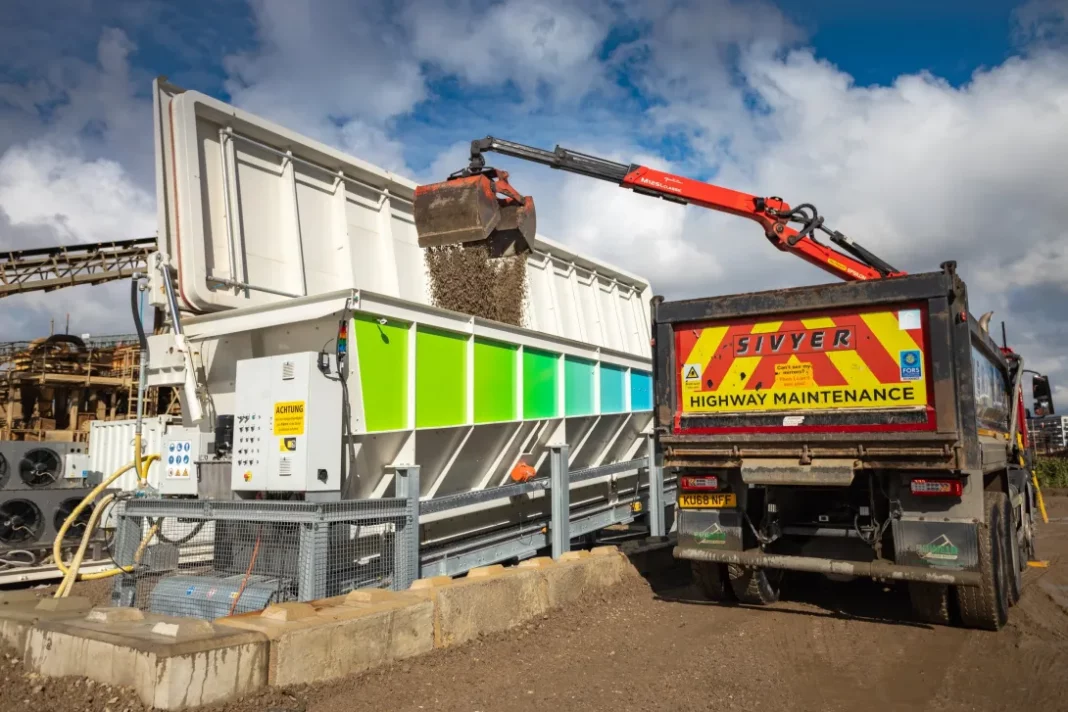Groundbreaking technology that can capture carbon from the atmosphere and lock it into recycled concrete has been brought to the UK by Aggregate Industries.
The Coalville-based building materials supplier, part of the global Holcim Group, nd Swiss company neustark have set up a mineralisation plant in London – the first venture into the UK market for the Swiss cleantech start-up which has 19 other sites in Europe.
Neustark technology helps turn waste from demolished concrete – the world’s largest waste stream – into a carbon sink, permanently locking carbon removed from the atmosphere into processed concrete.
The technology works by taking concrete from demolished buildings which is crushed and screened at an AIUK recycling site. It then undergoes a procedure in which CO2, captured from biogas plants, is liquified and injected into the concrete granules.
This triggers a mineralisation process which permanently locks the captured carbon into the granules and can then be used to make new concrete or other building materials.
So far neustark has permanently removed more than 2,500 tonnes of carbon since it launched commercially in 2023, with an aim of removing a million tonnes by 2030.
Holcim invested in neustark last year, and is collaborating with it to deploy the solution at its sites worldwide, scaling up low-carbon and circular construction to multiple sites. The partnership won the 2023 Deloitte “Technology Fast 50” Venture Client Award for outstanding collaborations between startups and large companies.
Lee Sleight, CEO of Aggregate Industries UK, said: “We are really excited to be introducing neustark into the UK as part of our aim to decarbonise our own operations and the wider industry.
“This takes the battle to reduce carbon emissions to the next level through carbonation. The technology is available now and works – it can make a difference now not in five years time.
“We have London – as one of the world’s largest urban mines – with direct access to demolished concrete from building projects and we have the neustark technology. Together we can remove carbon from the atmosphere and permanently lock it into recycled concrete which can then go on to be used again in new building projects.
“This isn’t just a great carbon removal innovation but a great circular economy innovation where we are taking what was once a waste stream and reusing it, saving us from digging up virgin materials in the first place.
“Once fully operational, we are sure that there will be plenty of like minded contractors and specifiers out there who want to further their own decarbonisation journey with us and we see this technology scaling up and delivering results very quickly. Together we can really drive towards our net zero ambitions.”



